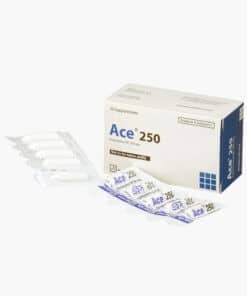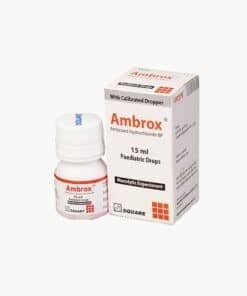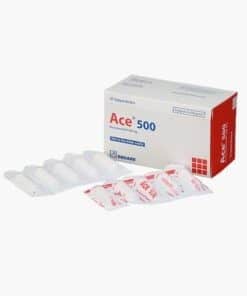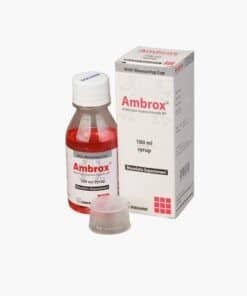Tufnil | 200mg | Tablet | 10 pcs
৳ 100.00
Brand Name: Tufnil Tablet
Generic: Tolfenamic acid
200 mg
Manufacturer: Eskayef Bangladesh Ltd.
Unit Price: ৳ 10.00 (6 x 10: ৳ 600.00)
Strip Price: ৳ 100.00
Indications
Therapeutic Class
Pharmacology
Dosage & Administration
Acute migraine attacks:
- Adult: 200 mg when 1st symptoms appear may be repeated once after 1-2 hr.
- Renal impairment: Dose adjustments may be needed. Severe: Avoid.
Mild to moderate pain:
- Children: A pediatric dosage regimen has not yet been established.
- Adult: 100-200 mg tid.
- Renal impairment: Dose adjustments may be needed. Severe: Avoid. It should be taken with food. Take water/ or immediately after meals.
Preclinical safety data: The therapeutic index for Tolfenamic acid is high, and gastrointestinal ulceration and kidney changes have only been seen with oral doses approximately 6-10 times the maximum therapeutic dose recommended for tolfenamic acid.
Special Precautions: Asthma, bronchospasm, bleeding disorders, cardiovascular diseases, history of peptic ulceration, hypertension, patients with infections, liver, cardiac, or renal function impairment. Increase water intake or dose reduction to reduce dysuria. CHF; elderly; lactation.
Interaction
Contraindications
Not to be used in-
- Children and adolescents under 18 years of age
- People with an active peptic ulcer or bleeding in the gut
- Severe heart failure, severe kidney failure, Severe liver failure
- People taking other NSAIDs, including COX-2 inhibitors
This medicine should not be used if you are allergic to one or any of its ingredients. Please inform your doctor if you have previously experienced such an allergy. If you feel you have experienced an allergic reaction, stop using this medicine and inform your doctor or pharmacist immediately
Side Effects
Pregnancy & Lactation
Pregnancy: This medicine is not recommended for use during pregnancy unless considered essential by your doctor. This is particularly important in the first and third trimesters. Not to be given during the third trimester of pregnancy.
Lactation: In limited studies so far available, NSAIDs can appear in breast milk in very low concentrations. NSAIDs should, if possible, be avoided when breastfeeding.
Precautions & Warnings
As is the case with other NSAIDs, tolfenamic acid should be used with caution in patients with a history of gastrointestinal ulceration, or impaired liver or kidney function.
The therapeutic index for tolfenamic acid is high, and gastrointestinal ulceration and kidney changes have only been seen with oral doses approximately 6-10 times the maximum therapeutic dose recommended for tolfenamic acid. In human volunteers, tolfenamic acid did not affect renal function.
Overdose Effects
Storage Conditions
| Generic Name | Tolfenamic acid |
|---|---|
| Size | 200 mg |
Only logged in customers who have purchased this product may leave a review.











Reviews
There are no reviews yet.